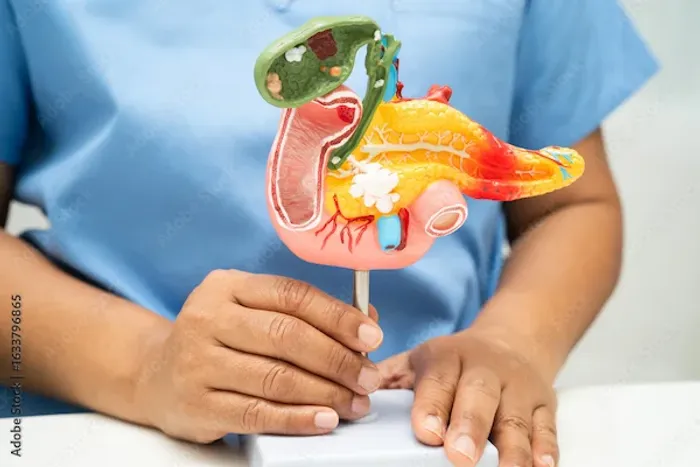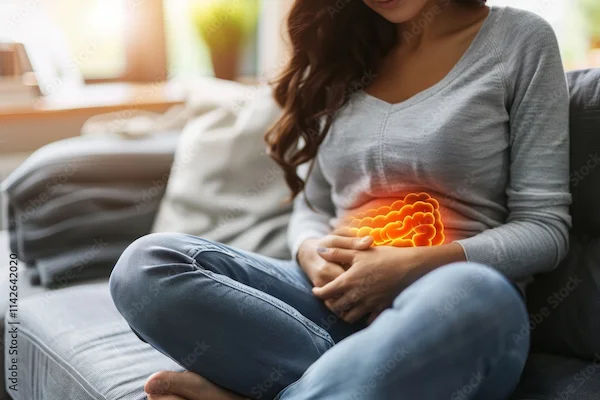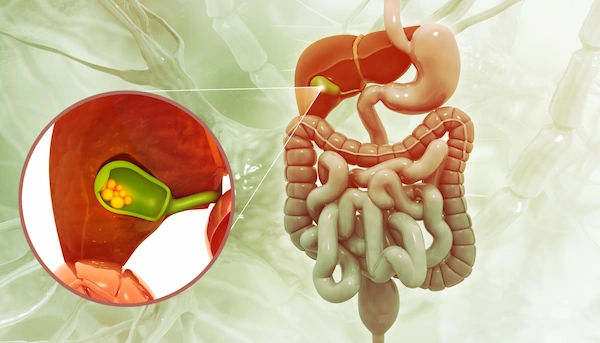Cholecystitis: Overview of Symptoms, Causes, and Treatment
Get a clear overview of Cholecystitis, the inflammation of the gallbladder. Learn its symptoms, common causes like gallstones, and effective treatment options.


Cholecystitis is a condition that affects the gallbladder, a small organ located beneath the liver. While it may not be a term you hear every day, it’s important to understand what it is, how it affects your health, and what you can do about it. This article will guide you through the basics of cholecystitis in simple, easy to understand language.
What is Cholecystitis?
Cholecystitis is the medical term for inflammation of the gallbladder. The gallbladder stores bile, a digestive fluid produced by the liver, and releases it into the small intestine to help break down fats. When the gallbladder becomes inflamed—usually due to gallstones blocking its ducts—it can cause pain, infection, and other complications if left untreated.
There are two main types of cholecystitis:
1. Acute Cholecystitis – Sudden inflammation, often causing severe pain.
2. Chronic Cholecystitis – Long-term inflammation, usually due to repeated mild attacks.
Symptoms of Cholecystitis
The most common symptom of cholecystitis is pain in the upper right or center of the abdomen. This pain can be sharp, cramplike, or constant and may spread to your back or right shoulder. Other symptoms include:
Fever and chills (if infection is present)
Nausea and vomiting
Bloating and indigestion
Yellowing of the skin or eyes (jaundice) – A sign of bile duct blockage
Dark urine and pale stools
If you experience severe abdominal pain that lasts for hours, especially after eating fatty foods, it’s important to seek medical attention.
What Causes Cholecystitis?
The most common cause of cholecystitis is gallstones, which block the bile ducts and prevent bile from leaving the gallbladder. This buildup leads to irritation and swelling. Other causes include:
Bile duct blockage (from tumors or scarring)
Infections (bacterial infections in the gallbladder)
Blood vessel problems (reduced blood flow to the gallbladder)
Tumors (rare, but can press on bile ducts)
Risk Factors
Certain factors increase the chances of developing cholecystitis:
Being female (hormonal changes increase gallstone risk)
Age (over 40)
Obesity
Rapid weight loss or fasting
High fat, high cholesterol diet
Diabetes
Pregnancy
How is Cholecystitis Diagnosed?
If you have symptoms of cholecystitis, your doctor may recommend:
1. Blood tests – To check for infection or liver function issues.
2. Ultrasound – The most common test to detect gallstones.
3. CT or MRI scans – Provide detailed images of the gallbladder.
4. HIDA scan – A special imaging test to see how bile flows.
Early diagnosis helps prevent complications like a ruptured gallbladder or severe infection.
Consult a General Physician for the best advice
Treatment Options for Cholecystitis
Few treatment options for cholecystitis include:
1. Medications
Pain relievers – To manage discomfort.
Antibiotics – If an infection is present.
2. Surgery (Cholecystectomy)
The most effective long-term treatment is removing the gallbladder (cholecystectomy). This is usually done via laparoscopic surgery, a minimally invasive procedure with a quick recovery.
3. Lifestyle & Dietary Changes
If surgery isn’t immediately needed, these steps can help manage symptoms:
Eat a low fat diet – Avoid fried, greasy, and processed foods.
Small, frequent meals – Helps prevent gallbladder overactivity.
Stay hydrated – Drink plenty of water.
Maintain a healthy weight – Gradual weight loss is better than rapid changes.
When to See a Doctor?
Seek immediate medical help if you experience:
Severe, unrelenting abdominal pain
High fever with chills
Persistent nausea/vomiting
Yellow skin or eyes
If you suspect gallbladder issues, consult a doctor for proper evaluation. You can easily book a consultation or diagnostic test through Apollo 24|7 for expert care.
Final Thoughts
Cholecystitis can be painful and disruptive, but with timely treatment, most people recover well. If you have symptoms, don’t ignore them—early intervention prevents complications. Simple dietary changes and medical care can make a big difference in managing this condition.
If you need further guidance, Apollo 24|7 offers expert consultations and diagnostic services to help you stay on top of your health. Take care of your gallbladder, and it will take care of you!
Would you like to schedule a check-up? Visit Apollo 24|7 today for fast, reliable healthcare support.
Consult a General Physician for the best advice
Consult a General Physician for the best advice

Dr. Vivek D
General Physician
4 Years • MBBS
Bengaluru
PRESTIGE SHANTHINIKETAN - SOCIETY CLINIC, Bengaluru

Dr. Dhanraj K
General Physician/ Internal Medicine Specialist
25 Years • MBBS, MD Internal Medicine - Osmania Medical College, Hyderabad
Hyderabad
Apollo Hospitals Jubilee Hills, Hyderabad
(425+ Patients)

Dr Syed Mateen Pasha
General Physician
2 Years • MBBS
Bengaluru
PRESTIGE SHANTHINIKETAN - SOCIETY CLINIC, Bengaluru
Dr P Sai Avinash
General Physician/ Internal Medicine Specialist
7 Years • MBBS
Bengaluru
Apollo Medical Center, Marathahalli, Bengaluru

Dr. Harshendra Jaiswal
General Physician/ Internal Medicine Specialist
12 Years • MBBS , MD (General medicine)
Kolkata
108 DHANA DHANVANTARI Clinic, Kolkata
(25+ Patients)

.webp)
